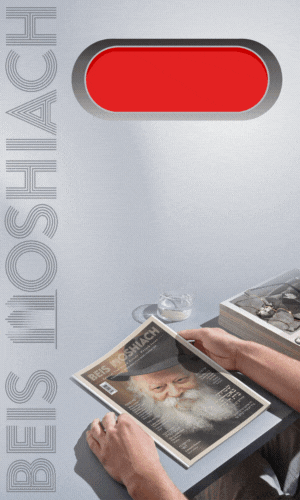Judge Scalia’s Chabad Connection
Renowned Attorney Nat Lewin penned his memories of the late US Supreme Court Justice Antonin Scalia who died recently • ” In cases I argued before the court, he voted with a court majority (against the ACLU and the American Jewish Congress) to sustain the Chabad menorah in front of Pittsburgh’s City Hall…” • Read More
Excerpts from an article by Nathan Lewin / JTA
WASHINGTON (JTA)-“When there was no Jewish justice on the Supreme Court,” Antonin “Nino” Scalia told me, “I considered myself the Jewish justice.”
After Abe Fortas resigned in May 1969, there would be no Jewish justice on the court for nearly a quarter of a century, until President Bill Clinton named Ruth Bader Ginsburg to the court in 1993.
Scalia had been on the Supreme Court since Ronald Reagan appointed him in 1986, so there were seven years during which Scalia saw himself as the court’s guardian of Jewish heritage. The New York-raised judge was shocked that he had to teach his colleagues how to pronounce “yeshiva” (Chief Justice Rehnquist William called it “ye-shy-va”) and, Scalia added proudly to me, “I even told them what a yeshiva is.”
Scalia’s admiration for Jews and Jewish learning explains the frequent references in his opinions to the Talmud and other Jewish sources, and the significant number of Orthodox Jewish law clerks he hired.
We were both in the Harvard Law School class that began in 1957 and graduated in 1960…
We became friends again when Scalia was named by Reagan to the U.S. Court of Appeals for the District of Columbia Circuit. In my first appearance before him, Judge Scalia gave my legal arguments a thorough drubbing and wrote the court’s opinion rejecting every legal claim I made-and then some. He did, however, vote to rehear another appellate-court decision that had rejected my constitutional claim for an Orthodox Jewish Air Force psychologist who wore a yarmulke with his military uniform. When he was promoted to the Supreme Court shortly thereafter (which I viewed as appropriate Divine reward because he and Ginsburg both made it to the highest court after they voted with us in the yarmulke case), we revived our law school friendship.
Scalia and his wife were guests in our sukkah, and he was kind enough to meet with law school classes I brought to Washington to hear Supreme Court arguments. (Zealously liberal students who claimed not to be able to tolerate Scalia’s judicial philosophy melted into personal fans after they met and spoke with the man. Rather than meeting the cantankerous grouch they were expecting, they saw and heard from a funny, modest, gregarious and intellectually honest judge.) He also accepted my recommendations to attend and address Orthodox Jewish gatherings such as colloquia run by Chabad-Lubavitch, sessions and dinners with Agudath Israel of America, and a mass meeting at Yeshiva University where he and I discussed current issues of constitutional law and public policy. Each event was enormously successful.
We seemed to share identical views on church-state issues. Scalia did not read the Establishment Clause of the First Amendment as broadly as secular Jewish groups do. In cases I argued before the court, he voted with a court majority (against the ACLU and the American Jewish Congress) to sustain the Chabad menorah in front of Pittsburgh’s City Hall and dissented when six members of the court held that public financing of a school reserved for handicapped children in the Satmar Village of Kiryas Joel, New York, was unconstitutional aid to religion. His views on government financing of religious institutions were applauded by Orthodox Jewish groups…
There is universal agreement that Nino Scalia was brilliant, amazingly articulate and a real mensch. There is strong disagreement, however, over the side he chose in ideological battles. Scalia is, of course, an Italian name. If one writes it with Hebrew letters, there are two possible-albeit squarely contradictory-ways of writing Scalia. One is to use the letters sin, kaf, lamed, which are also the root of “sechel”-Hebrew for “wisdom.” The other is to use the Hebrew letters samech, koof, lamed, which are the root “sokol”-meaning “to stone.”
Some praised Nino’s wisdom; others were ready to stone him. But all must concur that he was a great man, that the United States he loved is greatly diminished by his loss, and that he greatly revered Jews and Jewish tradition.
107
Join ChabadInfo's News Roundup and alerts for the HOTTEST Chabad news and updates!










































